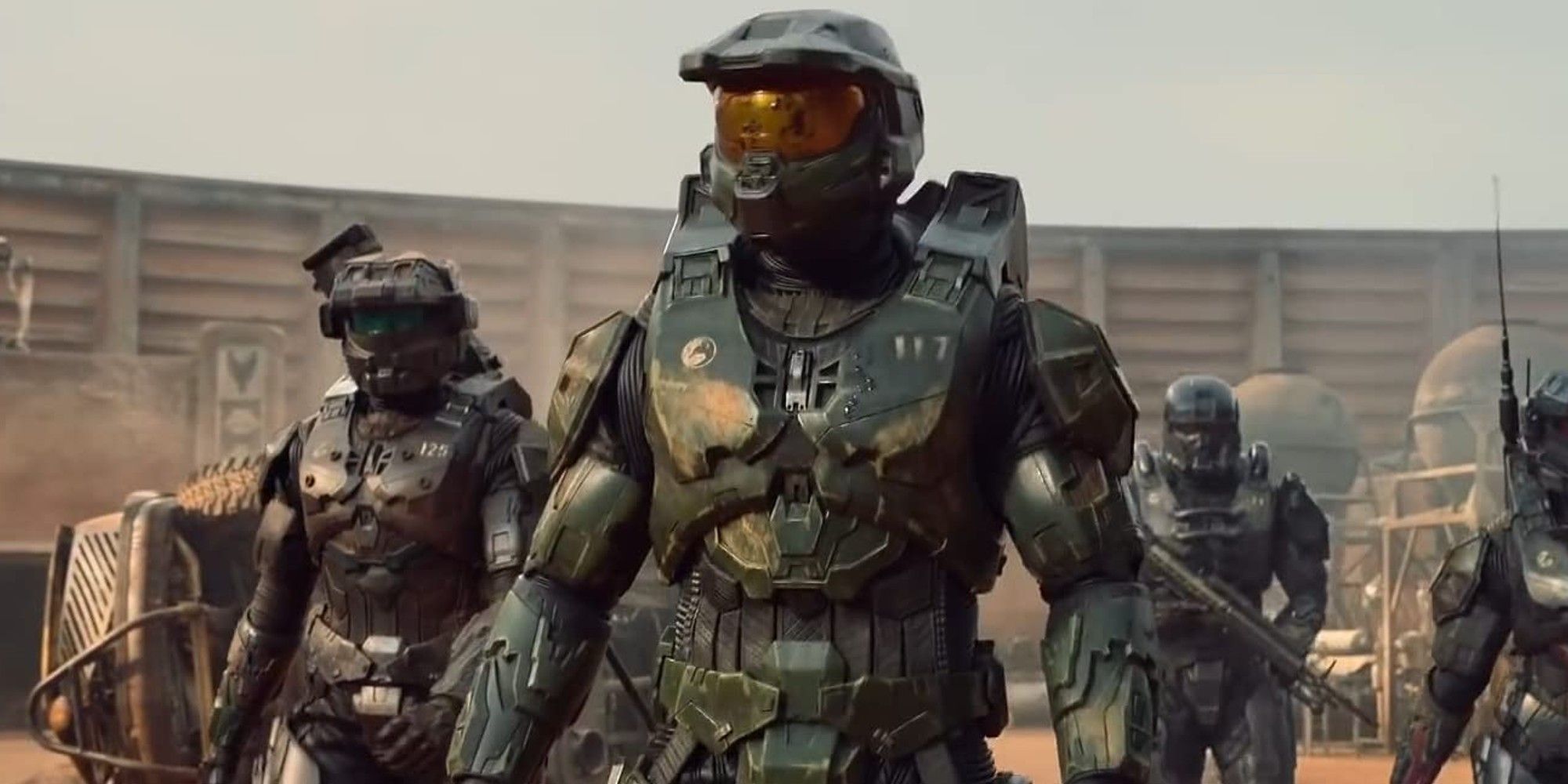
Paramount TV+'s Halo TV series has replaced the Master Chief's Blue Team with an all-new group, Silver Team. He may be the most accomplished of the Spartans, but the Master Chief was never intended to work alone - as is made clear from his rank, which allows him to give orders to both UNSC troops and other Spartans alike. But, although Paramount TV+'s series seems to have aligned largely to the lore from the original franchise, the Master Chief's team has been switched up significantly.
The Spartans were originally created to fight against a human Insurrectionist movement, but they've been repurposed to deal with the invasion of an alien Covenant. They're genetically engineered super-soldiers who've been trained since they were six years old, and they've learned to work together with brutal efficiency. The Master Chief is their usual leader, an accomplished tactician who's particularly admired for his tremendous luck. In the game universe, the AI Cortana even speculated John-117 has some sort of genetic ability to bend reality itself around him in his favor.
In the Halo game universe, the Master Chief leads Blue Team, which is traditionally a group of around four Spartans. Although many former members have been killed in action, the most famous Spartans in Blue Team are John-117, sub-leader Frederic-104, scout Kelly-087, and sniper Linda-058. They've been switched in Paramount TV+'s Halo series, where the Master Chief commands Silver Team, which consists of Riz-028, Vannak-134, and Kai-125. Amusingly, the change made to the team has been used to differentiate this timeline from the original one; the timeline in the show is named the "Silver Timeline," after the most obvious change to continuity.

It's worth noting this doesn't necessarily mean the members of Blue Team have been erased from this Halo timeline. Spartan teams are typically quite flexible, with members moved from one team to another depending on the needs of specific missions. The use of original characters allows Paramount TV+'s Halo TV series to develop the members of Silver Teams in different ways, discarding prior expectations viewers may have based on their experience of the games. An added benefit is that Silver Team is notably more diverse than the typical members of Blue Team. This matters because, unlike in the games, the Spartans of Paramount's Halo TV series take their helmets off. In narrative terms, this should help give a sense of distinctive characterization, allowing viewers to develop a sense of rapport with these Spartans.
Looking beyond this, there seem to be few differences between Silver Team and Blue Team, making the change in membership largely a cosmetic one. The members of Silver Team appear to follow the same structure: a commander, a sub-commander, a scout, and a sniper (Kai-125 is frequently shown holding weapons that are useful for sniping). It will be interesting to see whether the members of Silver Team stick around, though. The tie-in Halo novels have strongly suggested the Spartans were a lot more flexible than most players assume, with individual Spartans moving to different teams depending on their different assignments. In any case, sadly the very specialization of the Spartans meant precious few survived as much contact with the Covenant as the Master Chief; he's a "good all-rounder," which means he's a lot more adaptable than his peers. The other heroes of Halo may not fare as well as their commander.
Comments
Post a Comment